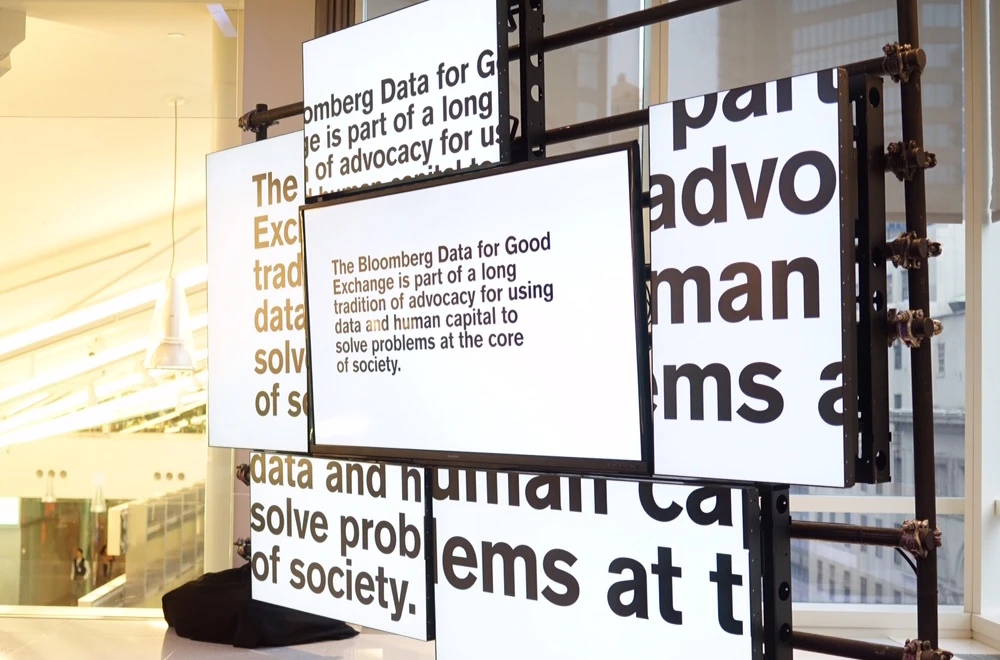Mining Data for the Public Good #D4GX
June 20, 2016

Bloomberg’s third annual Data for Good Exchange will focus on how data science can be applied to the public interest
From Los Angeles to Chattanooga, cities are investing in networked streetlights that offer much more than just more efficient illumination. Smart streetlights can include nodes that acquire data on the surrounding environment, including noise, motion, air quality and even record video.
The information from smart streetlights can be leveraged by local government and the wider community to improve services, from better policing to smart parking systems that detect open spaces and get drivers to park more quickly, which helps reduce emissions and traffic.
In recent years, the private sector has embraced data science to help boost business performance. The public sector has been slower to integrate data analytics into its decision making processes. However, that is beginning to change as federal, state and local government officials find success with data-driven projects like smart streetlight systems.
On September 25, 2016, Bloomberg’s third annual Data for Good Exchange aims to advance the promising field by focusing on the theme of “better governance.” The Exchange currently has an open call for papers looking at how data science can be applied to solve public interest problems in areas such as justice and fairness, economic development, security and safety and public service delivery. Here you can view highlights from last year’s conference:
Papers can explain a successful application, present a challenge, describe an especially relevant dataset or lay out a vision for the future direction of these fields. More information on the call for papers can be found here. The abstract submission deadline is July 1, with the paper deadline coming one week later.
At the conference, keynote speakers with deep experience in data science in the public and private sector will join with paper authors and participants from industry, governments, non-profits and academia to look at how cutting edge data science can promote social good.
Keynote speakers DJ Patil and Lynn Overmann work at the very highest level of data science in the public sector. Patil, former chief scientist at LinkedIn, is the Chief Data Scientist for the White House. Overmann serves as the senior policy advisor to the U.S. Chief Technology Officer at the White House. Current White House efforts involving the use of big data range from the Police Data Initiative to the Precision Medicine Initiative, which aim to use data to improve trust in law enforcement and delivery of personalized healthcare.
One emerging risk is that algorithmic systems can re-encode bias and increase inequality. This concern is a topic that keynote speaker Cathy O’Neil tackles in her forthcoming book, Weapons of Math Destruction. In the book, O’Neil reveals how the “opaque, unregulated, and uncontestable” conclusions of Big Data threaten fairness and democracy, like when a potential borrower can’t get a loan because a lending model deems him too risky by virtue of his postal code.
The act of collecting data won’t alone improve how government works. There’s a human dimension that is critically important, too. The fourth speaker, James Anderson, will discuss how local government is using data to get better at how it makes decisions. Anderson currently directs Bloomberg Philanthropies’ Government Innovation program, which equips city leaders with the tools and skills to think and act more innovatively. Before joining Bloomberg Philanthropies, Anderson served as Communications Director for former New York City Mayor Michael R. Bloomberg, and was the chief architect of NYC Service, a program begun during the Bloomberg administration that connected volunteers with city agencies and community groups.